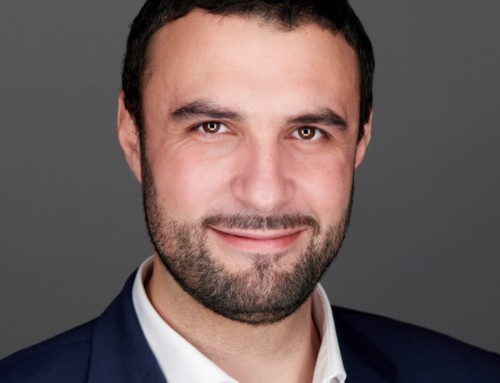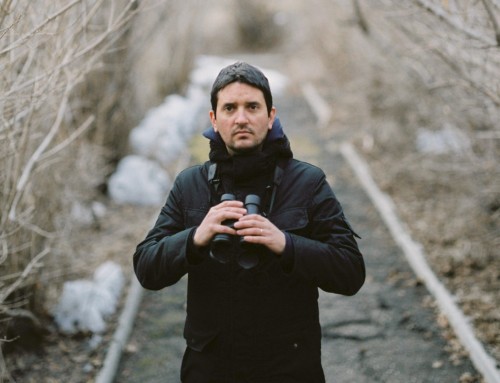Our personality in this interview has the frank laugh, the sparkling eye and hyperactivity for second nature : Gilles Gerber
This native Alsatian and seasoned sportsman, we knew him in another life at Nestlé, and it is with great pleasure and deep interest that we wish to share with you his unfailing dynamism, his vision of the profession and above all his vast and rich experience of the Supply Chain in the great Swiss company.
-
Gilles Gerber, could you first tell us about yourself and your innate and strong interest for the Supply Chain?
First of all, thank you for being able to share this common passion!
Unlike many of my colleagues, I didn’t fall into the Supply Chain pot when I was very young.
After training as a chemical and mechanical engineer, I first spent 10 years in the automotive sector, in turn in R&D, project management, industrial technical management and then in production in the metallurgy sector.
I then started again in R&D at Nestlé and, curiously enough, it was in this context that I was able to make my first steps in Supply Chain. Having participated in the birth of SPECIAL.T, our CEO at the time asked me to think and set up a Supply Chain to start this business based purely on an e-Commerce model. I therefore had the opportunity to start from a blank sheet of paper and build step by step our first operational set-up and all the partners associated with this new adventure.
-
Special.T is a start-up company under the aegis of the great Nestlé house. In your opinion, what are the main impacts of this status on the Supply Chain approach? How do strategic global logistics and operational logistics best fit in this configuration?
I believe that this is the strength of the Nestlé Group.
We had the opportunity to build a model that suited us perfectly, and not just based on the existing ones.
If synergies with other entities can make sense, we must of course take advantage of this experience internally and capitalize on these decades of experience. I am thinking mainly of my colleagues in the Nespresso and Nescafé Dolce Gusto Business Units.
On the other hand, if we needed to set up specific operations or configurations so that the business could develop fully, then we had all the latitude and support we needed to do so and thus meet specific requests internally or from our consumers. We built on the experience we had gained so far and built our model by listening to our fathers who learned from their mistakes long before we did! And the best way to do this was to meet them and ask them what they would have done differently if they had had the opportunity. That’s how we built our own Supply Chain, at our scale and with our means.
-
Technically and humanly speaking, what are the greatest lessons to be learned from an experience like yours at Nestlé?
That’s a big question. Probably as vast as what the Supply Chain can bring you in a company like ours.
Technically speaking, it is difficult, if not impossible, to draw immutable lessons. We’re in a world that’s changing at breakneck speed, with needs that are constantly changing over time. I’m not talking about decades, but rather major changes from one year to the next! I therefore believe that we must always technically question our ways of understanding the business and be ready to review our operating methods to adapt to rapid change. I recently heard that 60% of the professional functions that will be on the job market in 2030 are positions that do not exist today. This means that change is ahead of us and that we must prepare for it as best we can.
Humanly speaking, I would say that Supply Chain and Operations in general have taught me a lot. People more than anywhere else are at the center of everything in the value chain. We must therefore be able to make the most of past experiences and we at Nestlé have this great opportunity to be listened to and, above all, heard.
-
During these 7 years at Special.T, what have been your greatest challenges and accomplishments of which you are most proud?
For me, challenges are my fuel and questioning our operating methods remains the essential driving force behind past and future accomplishments.
The greatest challenges have always been to ensure that the Supply Chain is not a obstacle to the development of our company but a driving force in meeting the expectations of our consumers.
These challenges are therefore structural, operational and organizational: to plan, anticipate and adjust our organization as best as possible to maintain an agility that allows us to adapt quickly to our environment.
The best example remains our transition in 2014 from a purely initial and centralized e-Commerce model to a market model, with a massive expansion of our distribution points and the logistical constraints inherent in the reorganization of our Supply Chain. I therefore remain proud of our teams and the agility and speed with which we have been able to completely change our model while maintaining a service rate that meets the expectations of all our customers and consumers.
-
Finally, if you had any advice for the younger generation of the Supply Chain, what would it be?
It would be presumptuous to give great lessons to our future colleagues, but as I often tell my team: the Supply Chain must remain a service that is as much internal as it is external. My main advice would be to know how to listen and, above all, how to get the information. In Supply Chain, having a full head helps, but a well-made head full of common sense is better! That’s how Supply Chain can become a driving force and not a hindrance to a company’s development.
As our Global Nestlé Supply Chain Manager says: “In this fast-moving and ever-changing world, the Supply Chain has to organize itself to be able to deliver and satisfy its customers anytime, anywhere and anyhow. “The image of the Supply Chain has changed a lot over the last 20 years and we are no longer just here to push pallets but to find operational solutions to the problems and challenges of our company.
Thank you Gilles Gerber !




